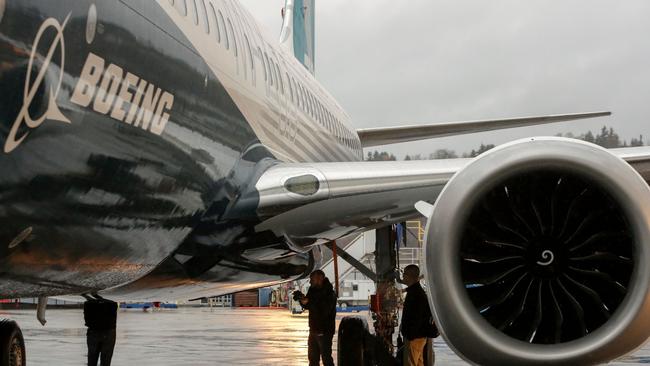
This represents a total reversal of previous defence policies where defence officials regularly rejected Australian industry proposals in favour of overseas sourcing.
They had no concept of what that would mean if there was a rise in tensions which would slash supply lines. It is perhaps not surprising that inexperienced defence people would stumble in this new era. I have documented those stumbles at some length.
In this context, the ANZUS alliance is now set to take on a very new dimension. Not only will it cover greater integration between our local defence industry and the US, but we are set to help the US overcome one of its biggest industrial/defence weaknesses – reliance on Russia and China for titanium and titanium related products.
This week in Greg Sheridan’s commentary on the future of relations between the US and Australia he highlighted an earlier Ben Packham interview when acting US Ambassador Mike Goldman said the US would pre-position in Australia more US defence material and supplies.
From other sources, I learned that the US strongly supports our local defence industrialisation and is looking at where it can play a part.
There is no doubt that titanium products are one of the most obvious areas.
Most Australian mineral production involves simply mining the “ore” and exporting. Sometimes we produce concentrates and in gas we produce LNG.
But this time we can actually be involved in the sophisticated industrial products, not only to the advantage of our own industry, but the US.
For example, we are brilliantly placed to bridge a US supply weakness in titanium powder.
In this context, a proposal by the listed Australian company Amaero is now going to be closely looked at by both the US and Australia.
In the material below I rely partly on last year’s submission to Australia’s Joint Standing Committee on Foreign Affairs, Defence and Trade by Amaero chief executive Barrie Finnin.
With the rapid uptake of additive manufacturing in the defence and aerospace industries, titanium alloy powder has become a strategic key input for US and western defence. But there are limited supply chains outside Russia, China and Kazakhstan.
Boeing has been forced to set up aircraft part manufacturing facilities in Russia to guarantee its supply of titanium – a decision made in 2013 at a less tense time.
Russia’s VSMPO-AVISMA has become the world’s largest titanium producer and the main supplier to Boeing. The American company has been researching new alloys with the Russians.
Recently when US- Russian tensions rose, Russia put on the table a set of measures that, if adopted could see the country halt crucial supplies of titanium to Boeing.
The aircraft industry is increasingly reliant on titanium as a strong lightweight material for use in wing assemblies, steering wheels, hydraulic systems and a number of other parts Accordingly this really underlined to the US its vulnerability in titanium, particularly as related materials are set to become even more important in batteries.
Australia has the world’s largest titanium reserves (rutile and ilmenite) and Amaero believes Australia has an opportunity to make itself the supply base for titanium alloy and titanium alloy powder.
Finnin wants Australia to establish and secure a sovereign facility to process titanium alloy powder and supply the local additive manufacturing sector.
But with this capacity, Australia could then reliably supply not only local defence suppliers but also our defence partners within the Five Eyes network.
After examining the local capability, Amaero believes it has identified key partners in the local supply chain and locally developed world-leading technology to enable the production of alloy from Australian titanium ore.
The subsequent transformation into rod, wire and powder would facilitate a Five Eyes supply of titanium alloy.
Amaero proposes to work with those partners to develop the end-to-end supply chain from ore and recycled metal scrap to rod, wire, powder and additive manufactured components.
Importantly, Australia can be self-sufficient in the production of titanium alloy powder, without relying on the supply chains controlled by China and Russia.
It is obvious given the earlier Boeing decision, that the US defence industry would be highly attracted to the prospect of securing a guaranteed supply of titanium alloy powder to satisfy its additive manufacturing capacity.
As I understand it, the Goldman statement was made in the knowledge that there was US interest in the Amaero plan.
Amaero was established in Melbourne during 2013, to commercialise metal additive manufacturing technologies developed by Monash University. Its base business is metal 3D printing supply, additive manufacturing equipment and materials such as aluminium alloy.
Customers include those in the aviation, defence and space sectors in both Australia and the US.
But like CSL, research is its backbone.
Amaero is one of the best examples in Australia of the commercialisation of university research. They have continued partnership with the university research strengths.




Sometimes a new industrial thrust comes upon a nation when it is not looking. Australia is at last now establishing a sizeable defence industrial base.